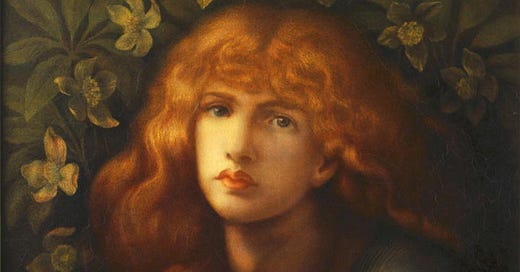While I continue my research and gather my thoughts for my next ‘proper’ article, I thought I’d share an experience I had today.
At the last minute I attended a public discussion in a city centre university between a radio station host and an academic historian. Although I was a little late I was allowed to enter as long as I was as quiet as a church mouse in finding a spot to sit down. The presence of microphones, cameras, and assorted audio-visual equipment in the room, was sufficiently awe-inspiring to ensure that I did not make a sound when I went in.
The subject was the Magdalene Laundries, or one in particular which operated in Dublin until fairly recently. Both interviewer and interviewee looked like they were in their early-40s, too young to have lived as I did through the period when these institutions were still functioning throughout Ireland. As I listened to the conversation I could not help noticing how balanced and thorough the academic was in answering the host’s questions. As for the latter, he was professional and articulate. But he could not hide his incredulity as the historian calmly described the horrors of an Ireland not long past.
At a certain point in the discussion, the historian spoke about the climate of fear that pervaded society back then. This fear stemmed from a lack of confidence among the poor when faced with the twin authorities of a dominant religious culture and an implacable state bureaucracy. She pointed out, however, that religious hegemony was not confined to the Roman Catholic Church. It was evident also – on a much smaller scale of course – among other Christian denominations. (The ‘Prods’ had their own versions of the notorious Magdalene Laundries.) She mentioned also the few women (and men) who spoke out against the prevailing climate and who were ignored, or who even suffered, for their trouble. As I said, she was fair and precise.
I understand exactly what that academic was talking about. As an inhabitant of a working class district during the 1950s and 60s, I inherited or imbibed from the culture around me an unquestioning deference towards our ‘betters’. We felt we were not quite of the same value as those in the upper reaches of society. It was not that the local parish priest, doctor, bank manager, etc. was psychopathic or evil. Everyone lived in a benign, paternalistic society back then. Each played his part, just as we did ours. We were the ‘kids’ and they were the gatekeepers, or ‘wise daddies’, whose firm guidance we should always heed if we wanted to ‘get on’. Getting on in life was all we thought about. That meant not upsetting the gatekeepers so badly that they withheld that all-important job reference, for instance, without which (I believed) escape from the underclass was impossible.
We were not victims of a repressive society, not victims at all. You could say we imposed the repression on each other. We did not want to be penalised ourselves, so we tried to shift authority’s gaze onto others. We could win favour by not getting drunk all the time like our neighbours did, or by keeping our homes neat and tidy, or by going to Mass every Sunday and saying our prayers in the church. It was an evil system, and we were part of it because we were afraid of the consequences if we were not.
We tolerated and condoned the evil around us, as long as we deluded ourselves into a belief that we were not implicated or involved. So if a female family member got herself into ‘trouble’, for instance, we quietly had her put into a Magdalene Laundry. We left it to the nuns to inculcate a sense of shame and remorse in her before they sent her back to us, all shiny and clean again.
As today’s discussion came to a close I wondered if there might not be a similar event in another half-a-century or so, this time about the Ireland of now. Then the focus would be on the men and women who lost their livelihoods, their reputations, their families, their friends, or even their lives, because we succumbed to fear once again - over a fake pandemic.
Will the truth of what happened in Ireland from March 2020 onwards emerge in the future? Will we recognise our complicity and connivance with evil during that dreadful time? Will we all, friend and foe alike, be able to forgive each other and together look to the future with confidence?
I hope so. I think so.





I guess in the future, we’ll have radio presenters and academics, too young to have lived through the Covid era, talking about it - listing the crimes and outrages and reacting in horror but with satisfaction that we are past such things and far too enlightened to let it happen again.
Your exploration of Magdalenes and masks is haunting in its resonance. The way you thread together historical erasure, performative identity, and the weight of unmasking reveals how little has changed—only the stage. A masterful excavation of the stories we’re forced to wear and those we choose to shed.